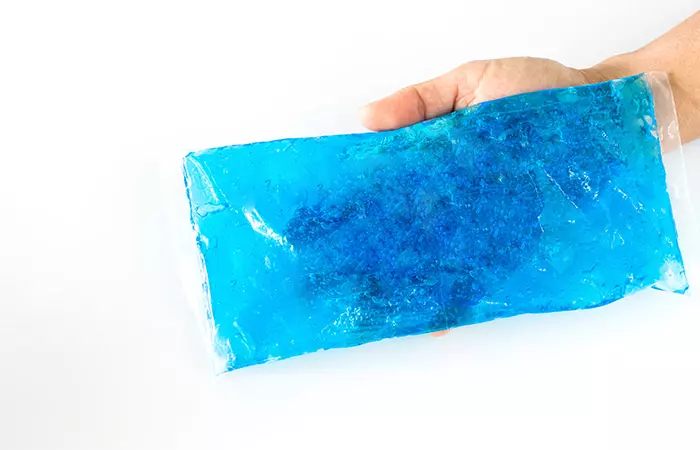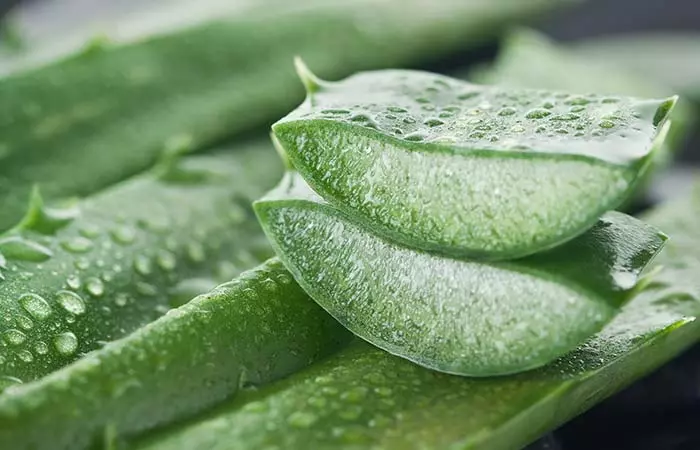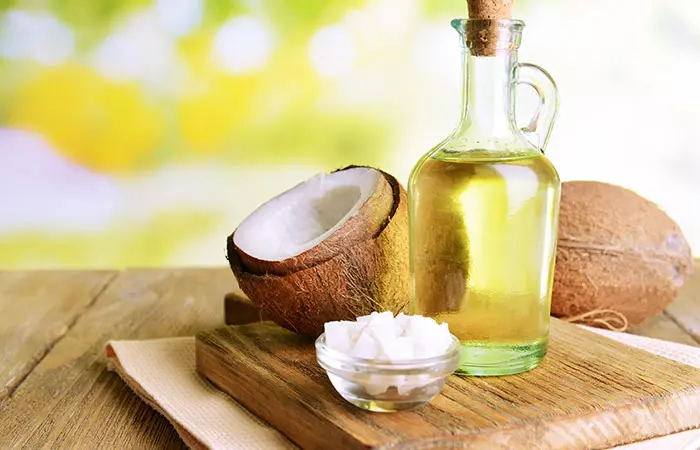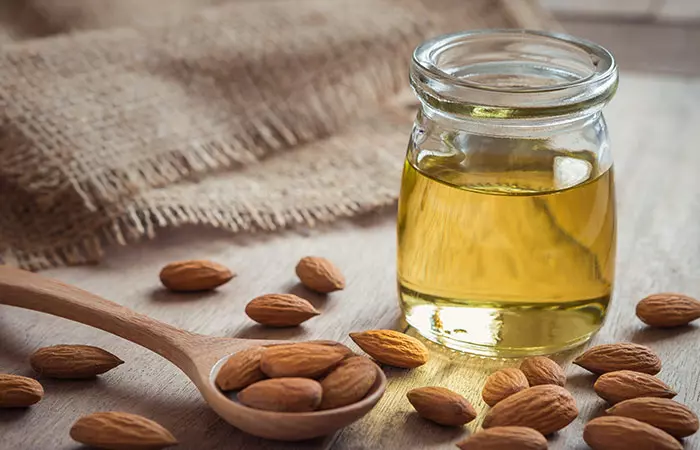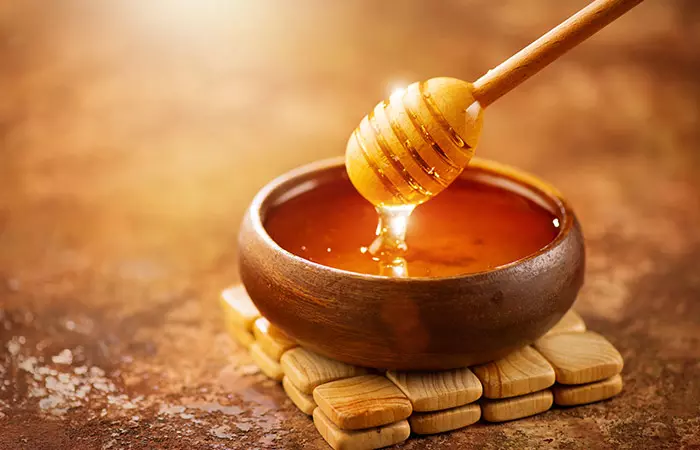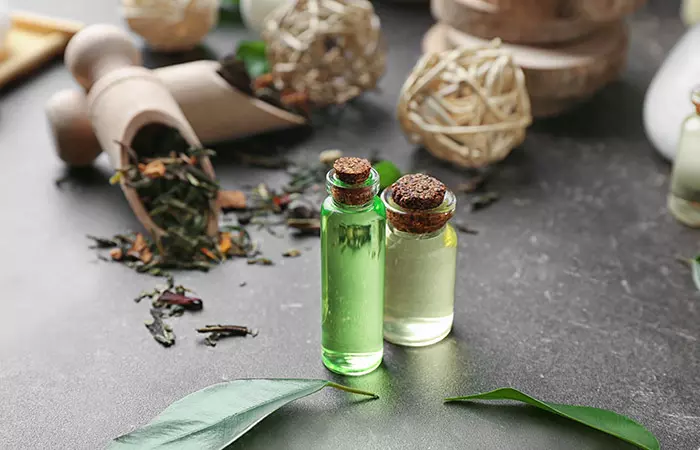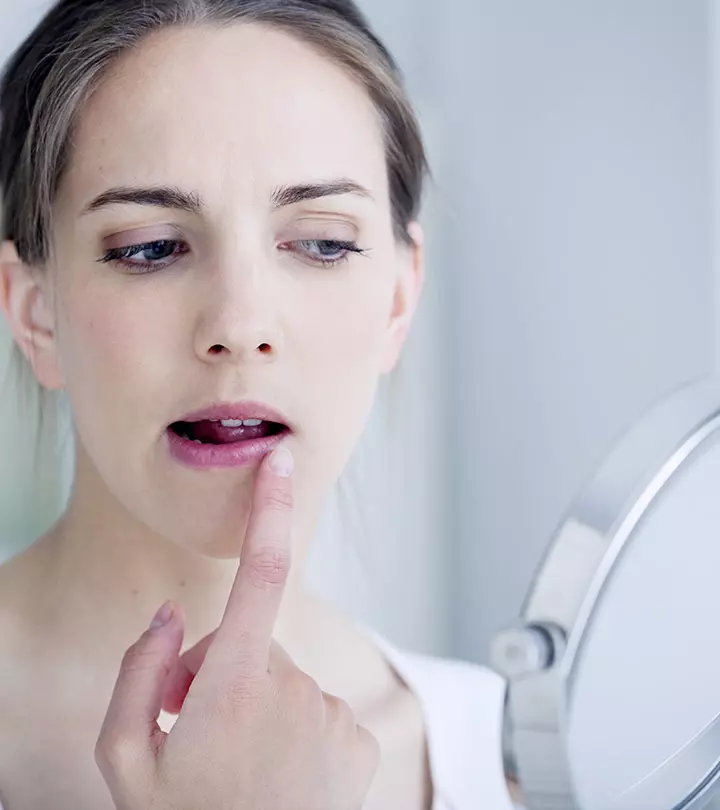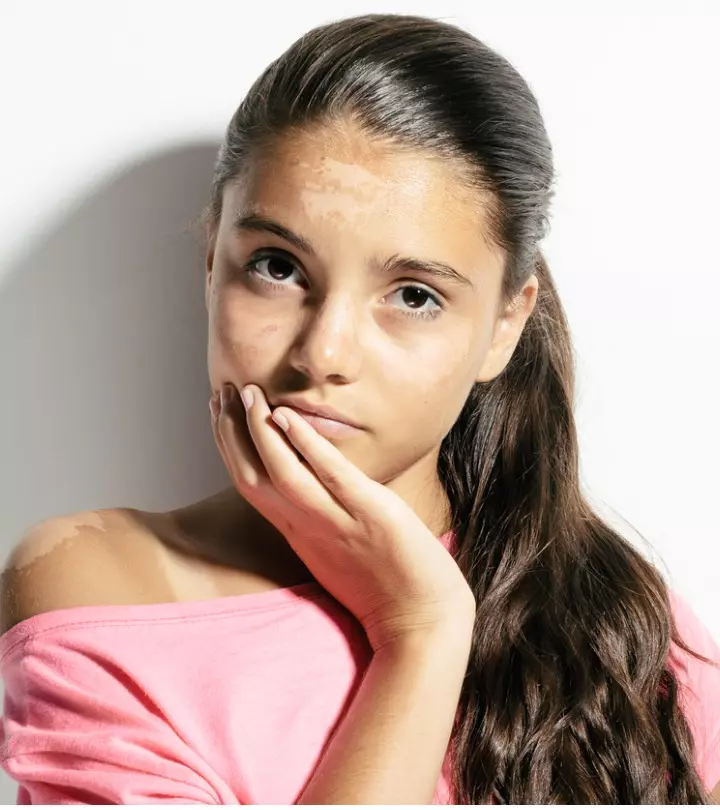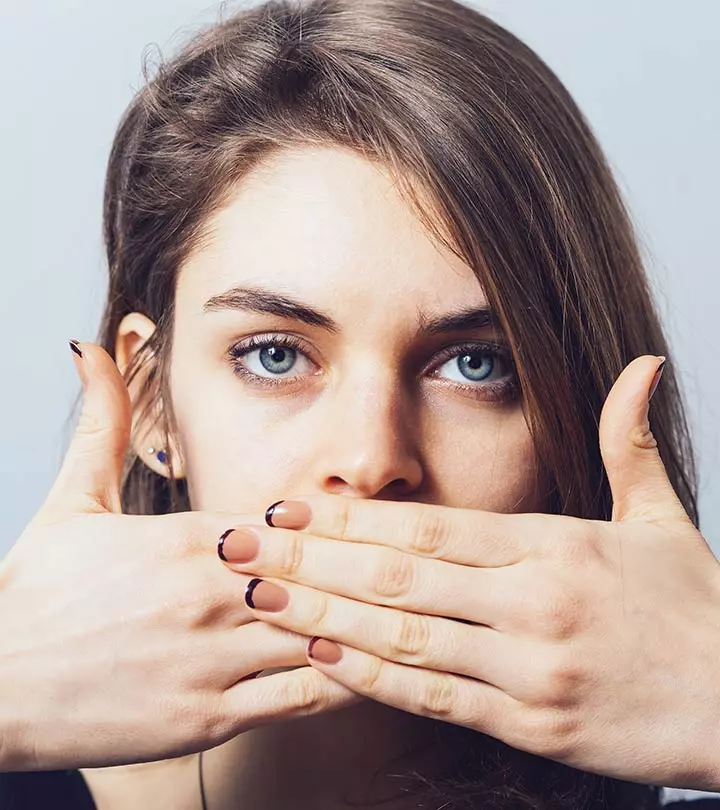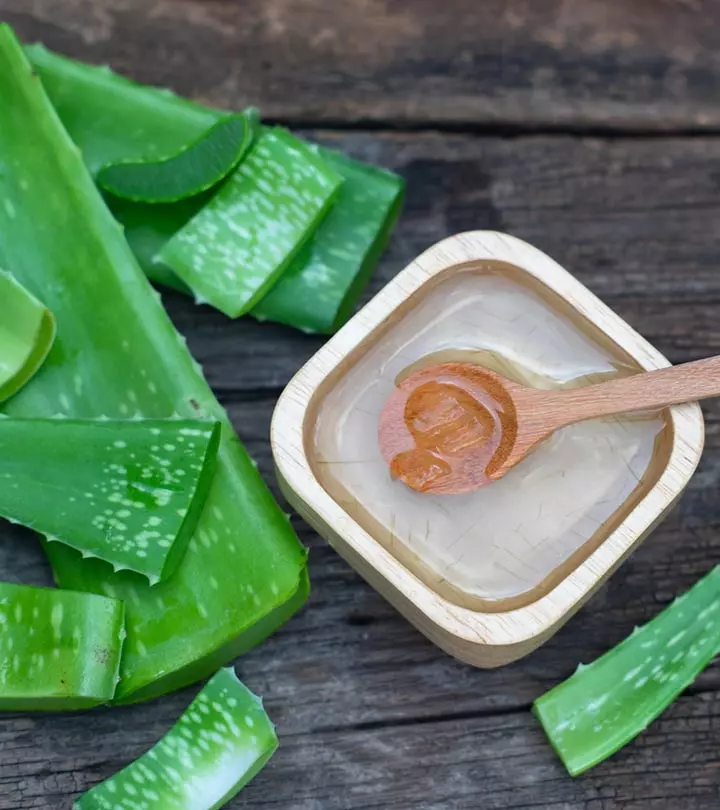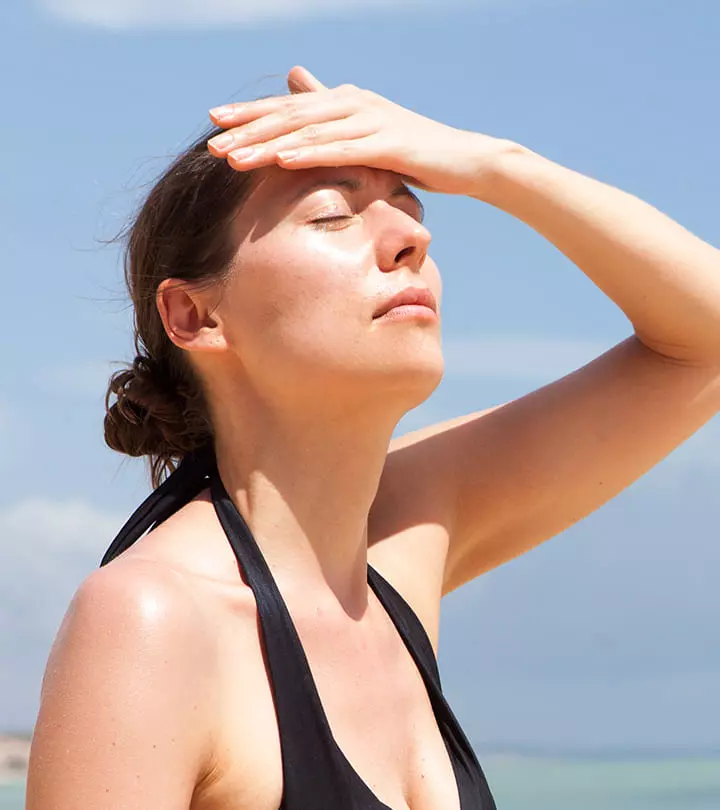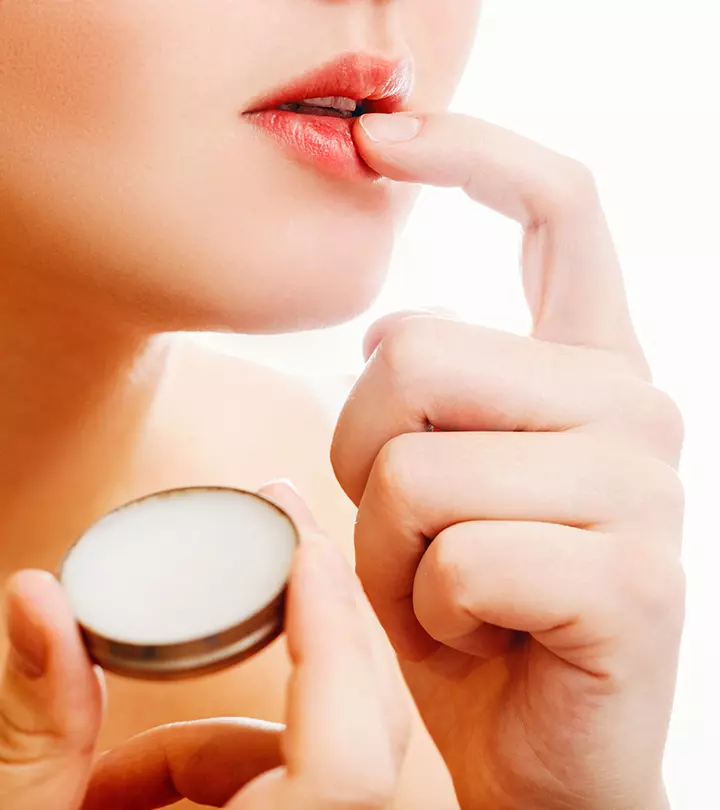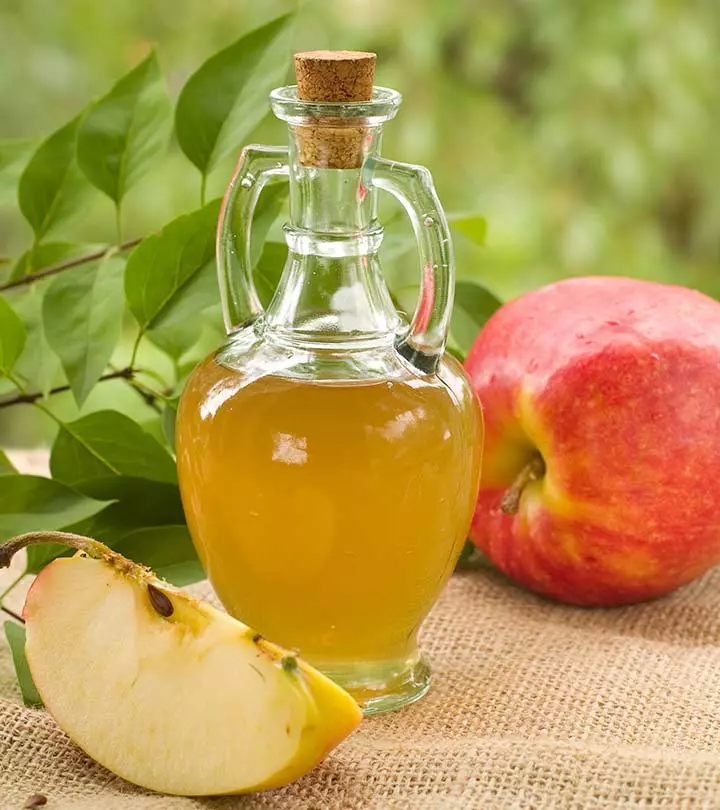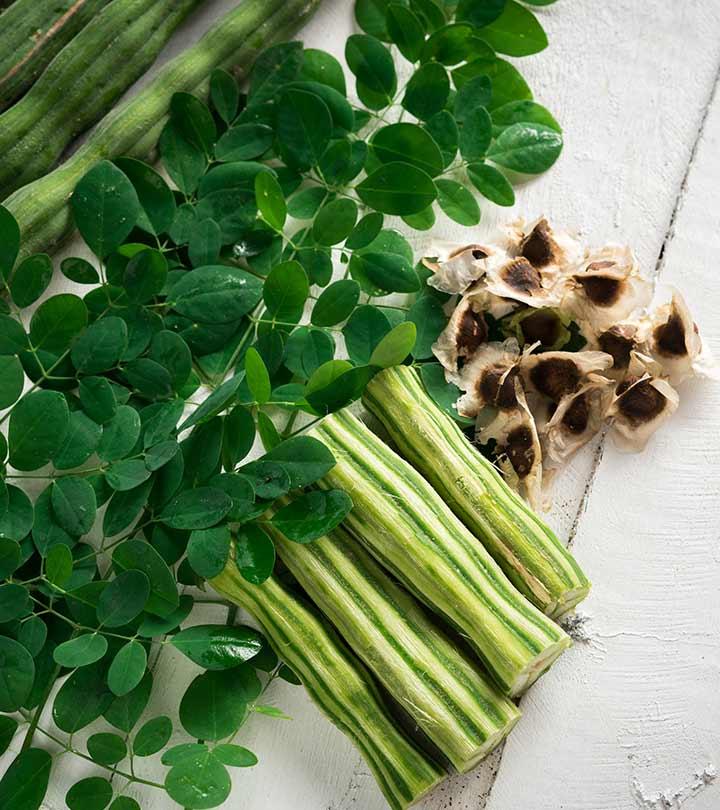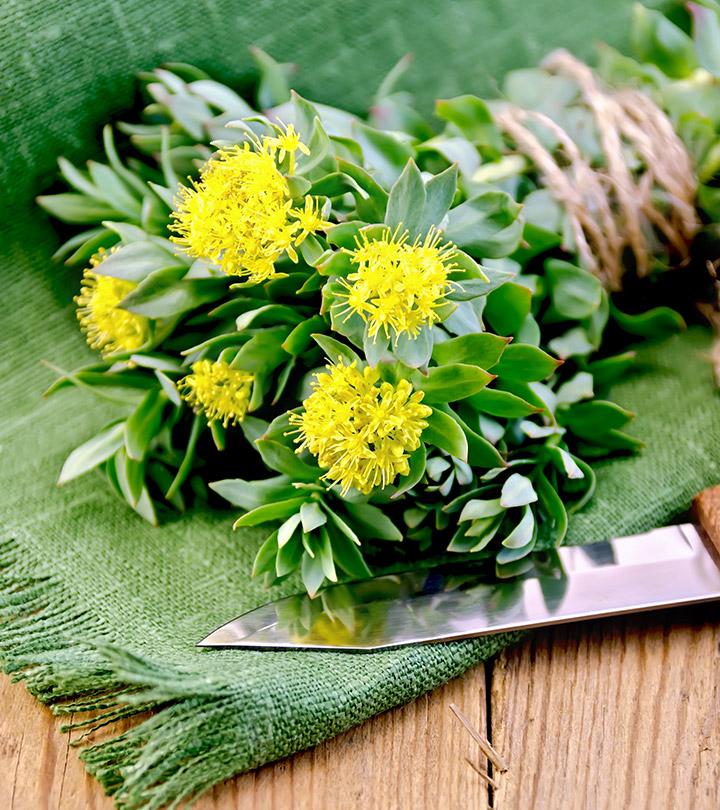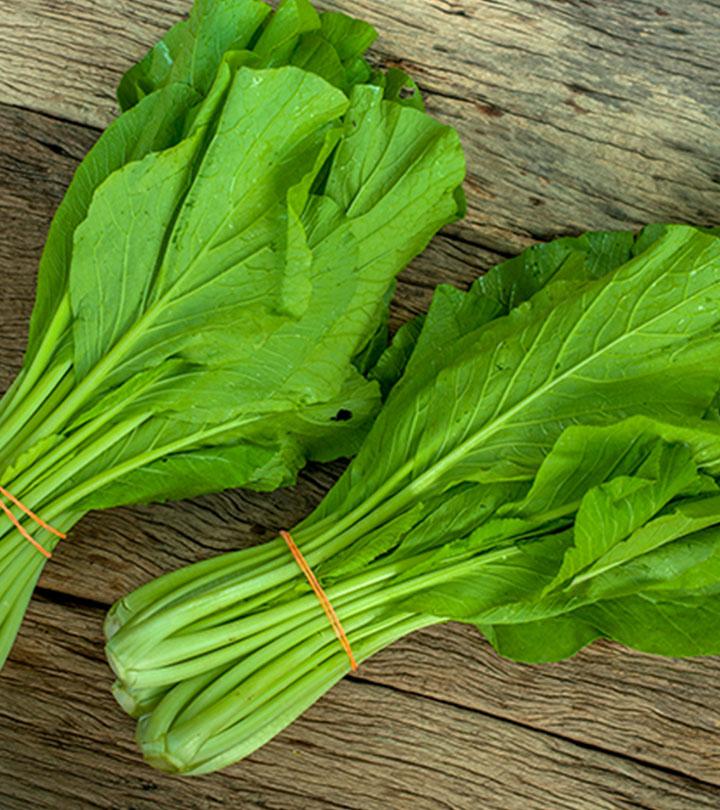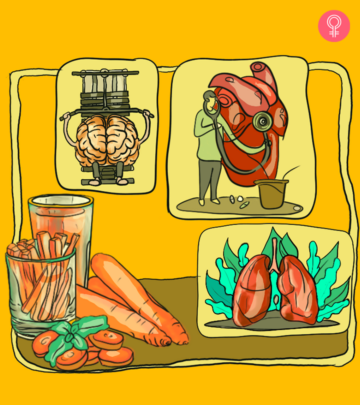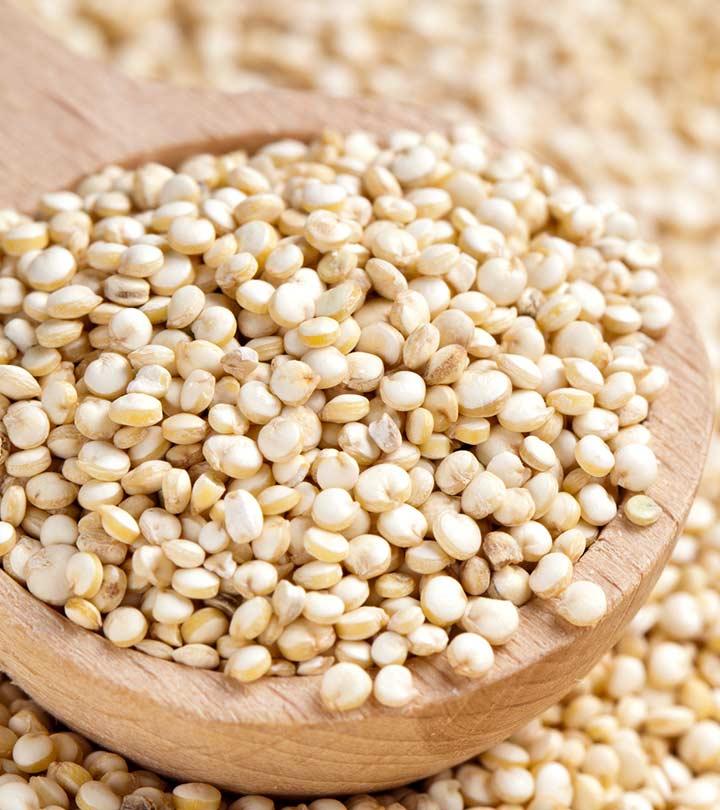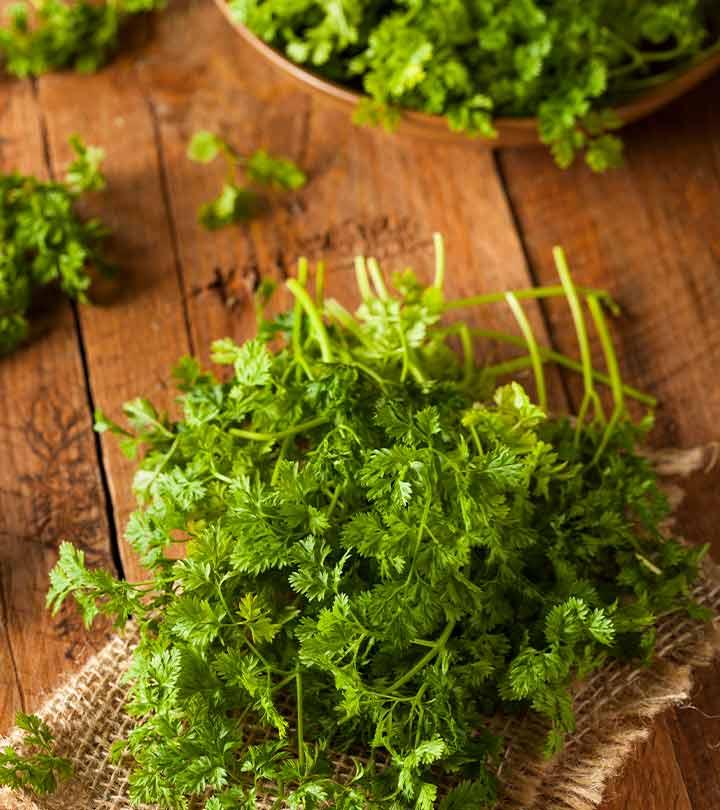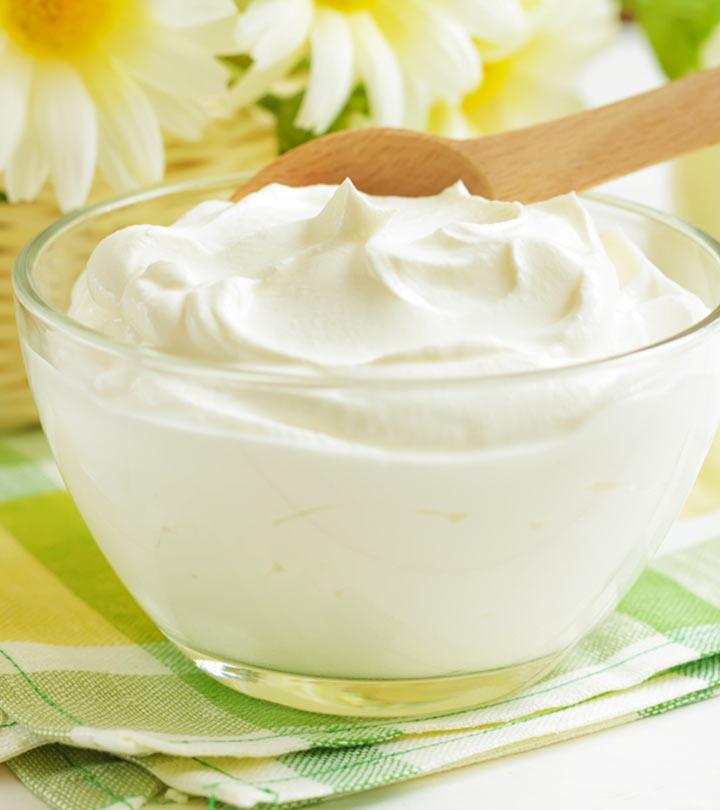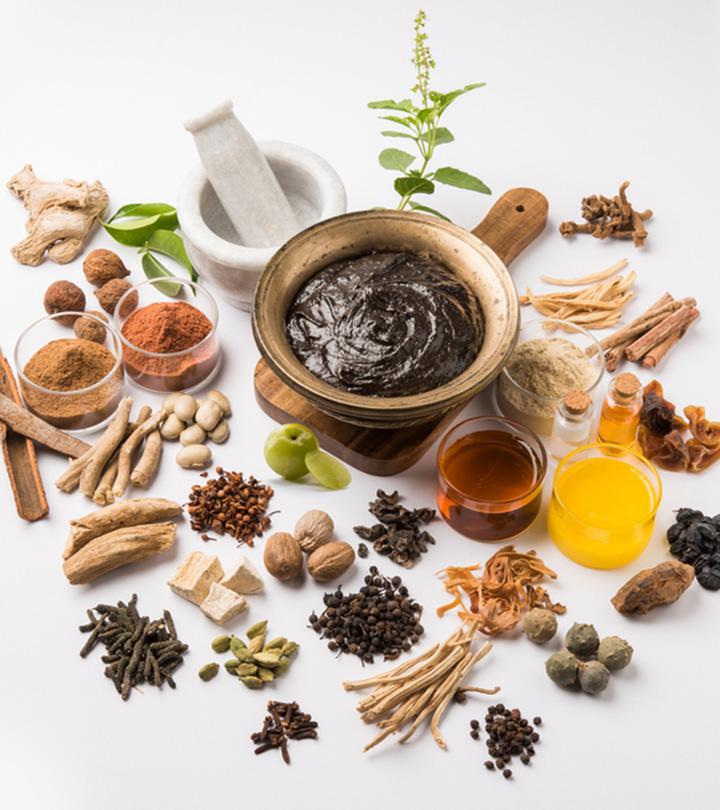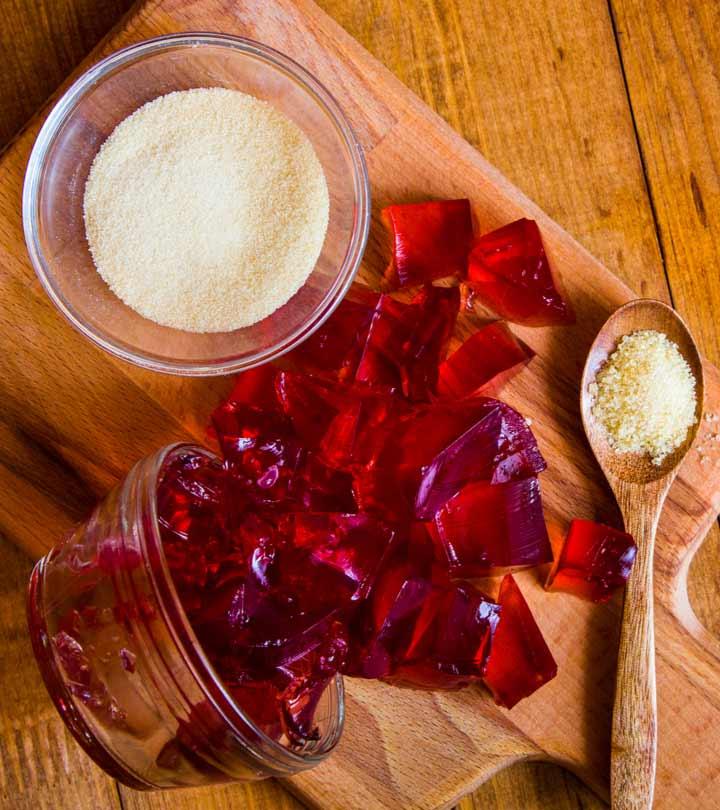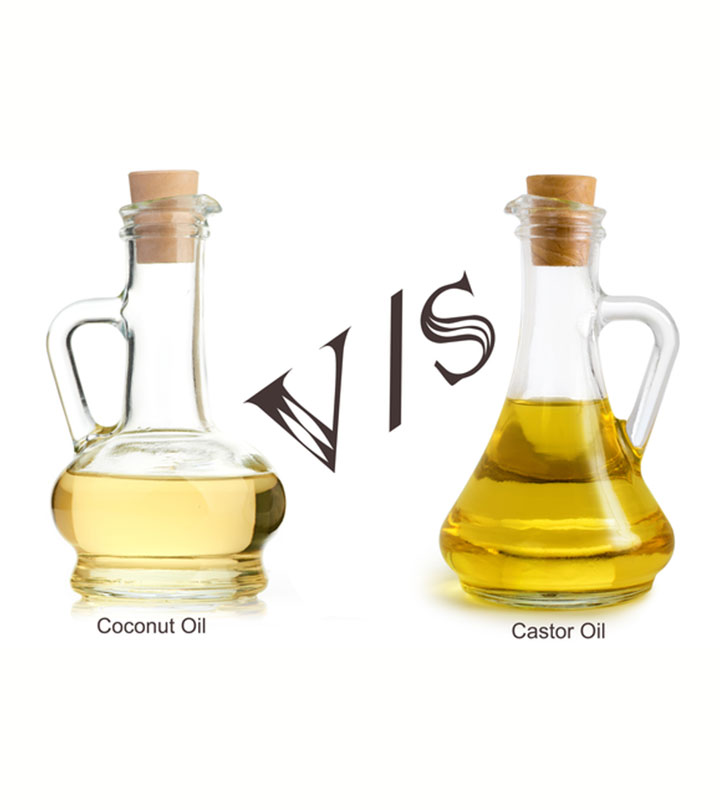7 Natural Treatments For Sunburned Lips & Prevention Tips
It is crucial to protect your lips when you step out so as to avoid sunburn.
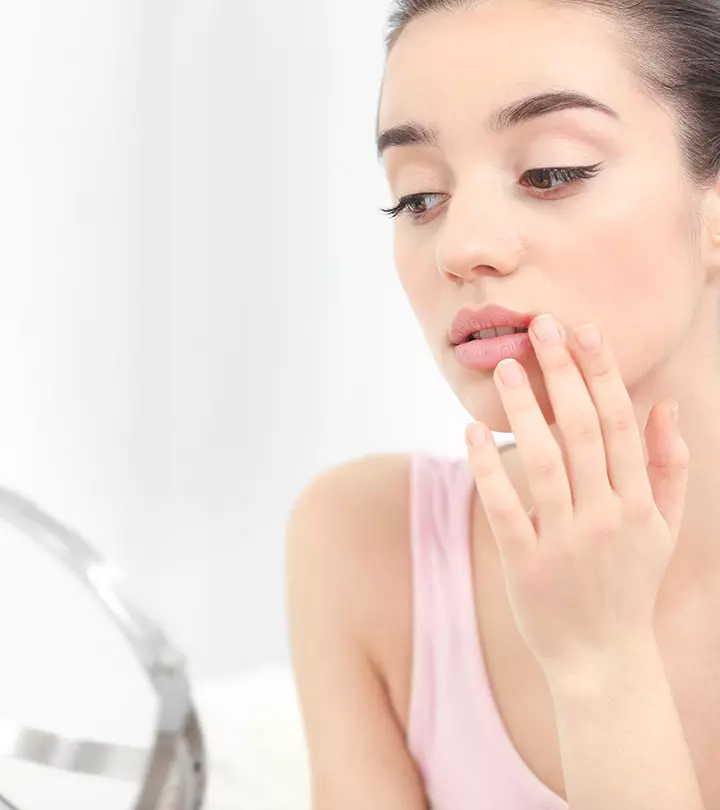
Image: Shutterstock
Most of us love to apply sunscreen to protect our face and body. But do you know that lips are more vulnerable to sun damage than the rest of the body? There are some natural treatments for sunburned lips that help reduce the associated symptoms.
Sunburned lips may turn reddish, swollen, and tender. Their thin layer of skin may also make them vulnerable to developing fluid-filled blisters around. Here, we explore the signs and symptoms of sunburned lips, the natural remedies to treat this condition, and ways you can prevent this condition. Keep reading to know more.
In This Article
Why Do Your Lips Burn Easily?
The lips are one of the most sensitive parts of your body. As the lips have a very thin layer of skin protecting them from the surrounding environment, their risk of getting sunburned is much higher than that of the rest of your body.
Your lips also have very little melanin, which is the pigment that offers protection against the sun. This, again, increases the chances of your lips getting sunburned.
The following are some common signs and symptoms associated with sunburned lips.
Signs And Symptoms
- The lips look redder than usual
- Swelling of the skin on the lips
- Tenderness on and around the lips
- Formation of small, white, and fluid-filled blisters
Sunburned lips are not only unsightly to look at but also quite painful. While doctors may prescribe some over-the-counter medications, here are some natural remedies that can help in alleviating the symptoms of sunburned lips faster.
Natural Remedies To Treat Sunburned Lips At Home
How To Repair Sunburned Lips Naturally
1. Cold Compress
You Will Need
An ice pack or cold compress
What You Have To Do
- Apply an ice pack to the lips.
- Leave it on for 10-15 minutes.
- Repeat as necessary.
How Often You Should Do This
Do this as soon as you notice the sunburn.
Why This Works
Cold compresses are generally used for pain-relief. They are soothing and exhibit anti-inflammatory activities that can help the sunburn heal faster (1).
 Quick Tip
Quick Tip2. Aloe Vera
You Will Need
Freshly extracted aloe vera gel
What You Have To Do
- Take some freshly extracted aloe vera gel and spread it over the affected area.
- Leave it on for 15-20 minutes before rinsing it off with water.
How Often You Should Do This
You may do this 2-3 times daily.
Why This Works
The healing action of aloe vera gel is so powerful that it can speed up the healing of first and second-degree burns. Hence, it may also help with sunburned lips (2).
Caution
Aloe vera works best when it is well preserved.
3. Vitamins
In a study published in the Journal of the American Academy of Dermatology, consumption of a combination of vitamins C and E was observed to reduce sunburn reaction and the induced damage (3).
Foods rich in these vitamins include citrus fruits, green leafy vegetables, nuts, and sunflower seeds. Consult your doctor if you intend to take additional supplements for these vitamins.
4. Coconut Oil
You Will Need
1 teaspoon of extra virgin coconut oil
What You Have To Do
- Apply extra virgin coconut oil gently to the lips.
- Leave it on until it dries.
How Often You Should Do This
You can do this multiple times daily.
Why This Works
The antioxidant and anti-inflammatory properties of coconut (Cocos nucifera) oil can help in healing wounds from burns (4). It can also trap moisture on the lips and offer adequate hydration. Hence, it may also be effective in soothing sunburned lips.
A beauty and lifestyle blogger applied coconut oil to her lips and achieved amazing results. Her lips became healthier and more hydrated than before. She adds, “Another thing I noticed was that applying coconut oil lightened the pigmentation on my lips and lightened them, thereby making them look pink (i).”
 Quick Tip
Quick Tip5. Almond Oil
You Will Need
1 teaspoon of cold-pressed almond oil
What You Have To Do
- Apply cold-pressed almond oil to your lips.
- Leave it on until it dries.
How Often You Should Do This
You can do this multiple times daily.
Why This Works
Almond oil exhibits photoprotective activities that can help prevent the damage caused by UV rays to your lips (5). It can also help in speeding up the recovery of sunburned lips.
6. Honey
You Will Need
1 teaspoon of raw honey
What You Have To Do
- Apply raw honey to the lips.
- Leave it on for 20-30 minutes and rinse it off.
How Often You Should Do This
You can do this 2-3 times daily for effective results.
Why This Works
The antioxidant and anti-inflammatory properties of honey contribute to its burn wound healing activities (6). This action of honey may also help in healing your sunburned lips faster.
7. Tea Tree Oil
You Will Need
- 2-3 drops of tea tree oil
- 1-2 teaspoons of coconut oil
What You Have To Do
- Add two to three drops of tea tree oil to one to two teaspoons of coconut oil.
- Mix well and apply it to your lips.
- Leave it on for 20-30 minutes before rinsing it off.
How Often You Should Do This
You may do this 2-3 times daily.
Why This Works
Tea tree oil is widely used in sunscreen formulations. It can help relieve sunburns by increasing blood circulation to your skin (7).
These are a few natural treatments that may help improve the condition of your sunburned lips. However, there are a few things you need to avoid while treating your lips. Check them out in the next section.
Treatments To Avoid
There are some OTC products, like creams and lotions, that can help treat sunburned lips. However, always check their ingredients lists to ensure they do not contain ingredients that you may be sensitive or allergic to and can cause skin irritation or adverse reactions. Also, it is best to avoid products containing petroleum jelly as it may lock in the heat from the sunburn, thus aggravating the inflammation.
Furthermore, popping the fluid-filled blisters may lead to infection or worsen inflammation. If your lips start swelling or develop a rash, it is best to stop using the home remedies or treatment you are following and consult a doctor immediately.
Sunburns can also increase your risk of developing lip cancer. Hence, it is extremely important to try and prevent your lips from getting sunburned. The following are some tips that may help.
 Quick Tip
Quick TipHow To Prevent Swollen And Sunburned Lips
- Use a lip balm or lipstick of SPF 30 or more.
- Reapply the lip balm every hour or so.
- Moisturize your lips regularly.
- Avoid exposure to direct sunlight, especially between 10 am and 4 pm.
- Avoid using tanning beds/booths.
- Wear hats or other clothing to protect your lips from the sun.
- Wear sunscreen daily, irrespective of the weather outside.
According to a 2023 survey conducted on 1,133 American adults, 16% of respondents always use sunscreen on their face, 32% occasionally apply sunscreen, and 25% stated that they never use sunscreen. Among those who never use sunscreen, 27% were male and 23% were female. Thus, these individuals are at a higher risk of developing sunburned lips.
Infographic: Ingredients That Make Sunburned Lips Worse
Even though the label does not clearly state it, many lip balms contain exfoliating chemicals. Gentle exfoliation, whether from a lip scrub or chemical cleansers, is beneficial to the lips every now and then. However, it is not recommended when your lips are scorched. Just the way you would not use a strong scrub on your tanned body, you should avoid doing the same with your lips. You should also avoid plumping products for the time being as they can irritate your lips. Avoid the ingredients mentioned in the infographic below when your lips are sunburned. Illustration: StyleCraze Design Team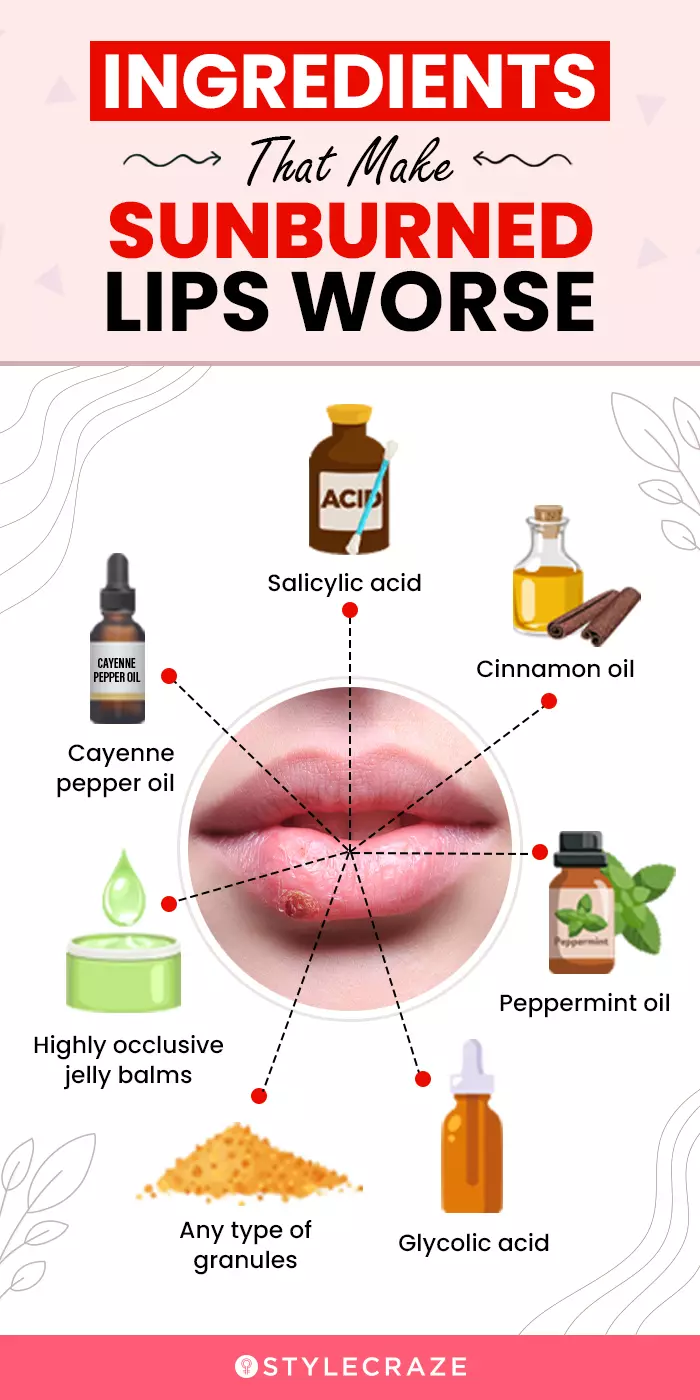
Lips are vulnerable to sunburns and cause pain. But certain natural treatments for sunburned lips help reduce the symptoms. Sunburned lips look reddish and tender. You also may observe swelling on the lips. Using an ice pack or cold compress, aloe vera, vitamins C and E, honey, coconut oil, and almond oil may help treat sunburned lips. In addition, using a lip balm or lipstick with SPF 30 or more, moisturizing the lips, and avoiding exposure to direct sunlight may help protect lips from sunburn.
Frequently Asked Questions
Is Vaseline good for sunburned lips?
Maybe. While Vaseline may help soothe sunburned lips, it does not provide sun protection.
Is Vicks Vaporub good for sunburn?
Yes, applying Vicks Vaporub on a sunburnt area may help reduce inflammation and soothe the skin.
Why do sunburns get worse at night?
Sunburns may get worse at night while you are lying down. This is because as you twist and turn, you may rub the sunburnt area on the bed.
Can I put sunscreen on my lips?
Yes, you can put sunscreen on the lips. It will help protect your lips from sun damage and chapping. Apply it before going out and reapply after every 2 hours.
How long do sun blisters on lips last?
Sun blisters on lips may last around 3 to 5 days. In severe cases, they may last more than a week.
Key Takeaways
- Our lips have a thin layer of skin and are more exposed to the sun, increasing the risk of getting sunburned lips.
- To soothe those red and swollen lips, you can try natural remedies such as applying a cold compress, aloe vera, or honey.
- Applying a lip balm with SPF 30 or more and avoiding exposure to sunlight can prevent you from getting sunburned lips.
Personal Experience: Source
StyleCraze's articles are interwoven with authentic personal narratives that provide depth and resonance to our content. Below are the sources of the personal accounts referenced in this article.
i. Why Coconut Oil Is My Best Friendhttps://friendsonabudget.wordpress.com/tag/parachute-coconut-oil/
References
Articles on StyleCraze are backed by verified information from peer-reviewed and academic research papers, reputed organizations, research institutions, and medical associations to ensure accuracy and relevance. Read our editorial policy to learn more.
- The diagnosis and emergency care of heat-related illness and sunburn in athletes: A retrospective case series
https://www.ncbi.nlm.nih.gov/pmc/articles/PMC2875908/ - The efficacy of Aloe vera cream in the treatment of first
second and third degree burns in mice. - Protective effect against sunburn of combined systemic ascorbic acid (vitamin C) and d-alpha-tocopherol (vitamin E)
https://www.ncbi.nlm.nih.gov/m/pubmed/9448204/ - Burn wound healing property of Cocos nucifera: An appraisal
https://www.ncbi.nlm.nih.gov/pmc/articles/PMC2792613/ - Effect of pre-treatment of almond oil on ultraviolet B-induced cutaneous photoaging in mice
https://www.ncbi.nlm.nih.gov/m/pubmed/17348990/ - Topical Application of Honey for Burn Wound Treatment – an Overview
https://www.ncbi.nlm.nih.gov/pmc/articles/PMC3188068/ - Potential of herbs in skin protection from ultraviolet radiation
https://www.ncbi.nlm.nih.gov/pmc/articles/PMC3263051/
Read full bio of Dr. Harryono Judodihardjo
Read full bio of Ravi Teja Tadimalla
Read full bio of Swathi E





